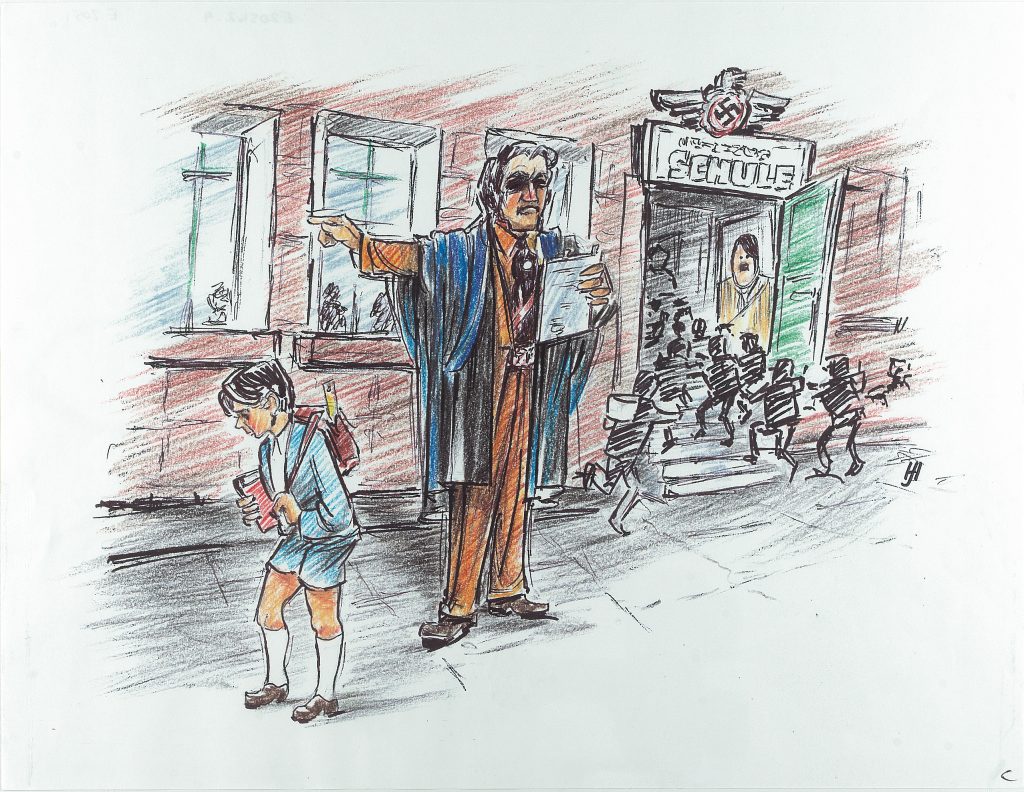In 1920 the National Socialist party published a twenty-five point programme that established an intention to segregate Jews and to curtail their political, legal, and civil rights.
Soon after Hitler came to power in 1933 the party began to carry out their intention to separate Jews from ‘Aryans’. From this point until the outbreak of war in 1939, around 400 pieces of anti-Jewish legislation were passed, affecting all aspects of Jews’ private and public lives. As well as laws passed at the state level, municipal and regional bodies added their own local statutes of anti-semitic rules and regulations.
Examples of antisemitic legislation from an article at USHMM, in PDF, at the link below (because direct page links tend to change over time)
USHMM Examples of anti-Semitic legislation
1933/34
The early legislation mainly covered aspects of public life. The first major act, the Law for the Restoration of the Professional Civil Service (April 7, 1933), excluded Jews from state service. In the same month, the number of Jewish students permitted to attend schools and universities was restricted. Soon after, Jews in many places were banned from the practices of medicine and law except in relation to other Jews. In Bavaria, for example, Jewish students were no longer allowed to attend medical school. Additionally, Jewish tax consultants were no longer given licenses to work, there was a 1.5 percent quota on admission to public schools and universities, Jewish civilians were fired from the army, and Jewish actors were no longer allowed to perform on stage or screen.

With the kind permission of Allen Sternstein
1935
At the annual National Socialist rally held in September 1935, the Nuremberg Laws were passed excluding German Jews from holding Reich citizenship. They were prohibited from marrying those with “German” blood. In addition, most political rights were removed, they were no longer allowed to vote, and could not hold public office. A Jew was defined at this point as anyone who had three or four Jewish grandparents – whether or not they self-identified as Jewish.
The Nuremberg Laws brought in a vast amount of further legislation – Jewish patients were no longer admitted to municipal hospitals in Düsseldorf; German judges could not cite legal opinions written by Jews; Jewish officers were expelled from the army; and Jewish university students were not allowed to sit for doctoral exams. Jewish soldiers who had fought for Germany in World War I were no longer to be named at memorials.
In other ways, too, economic hardships were increased, as Jews in all kinds of spheres were prevented from earning a living. All domestic and foreign property and assets had to be registered; across all areas, Jewish workers and managers were dismissed; and Jewish company ownership was transferred to ‘Germans’ at prices well below market value. From April 1933 to April 1938, the number of Jewish-owned businesses in Germany was reduced by approximately two-thirds.
1936
This was a relatively quiet year for legislation while the world was watching Germany during the Olympics held in Berlin that year. Many notices forbidding Jews to enter public places were taken down, and little new legislation was passed.
1937/38
All Jewish property now had to be registered at a state level, and all Jewish doctors and lawyers were forbidden to do business with non-Jews. After the pogroms of November 1938, Jews were barred from cinemas, theaters, parks and sports facilities. They were banned from attending from all public schools and universities.
In addition, Jews were required to identify themselves as such publicly: in August 1938, it was decreed that by 1st January 1939, those with names that weren’t ‘obviously Jewish’ had to add “Israel” and “Sara” to their given names.
Finally, Jews were now obliged to carry identity cards that indicated their Jewish heritage and, in autumn 1938, all Jewish passports were stamped with the letter “J”.
——————————————
